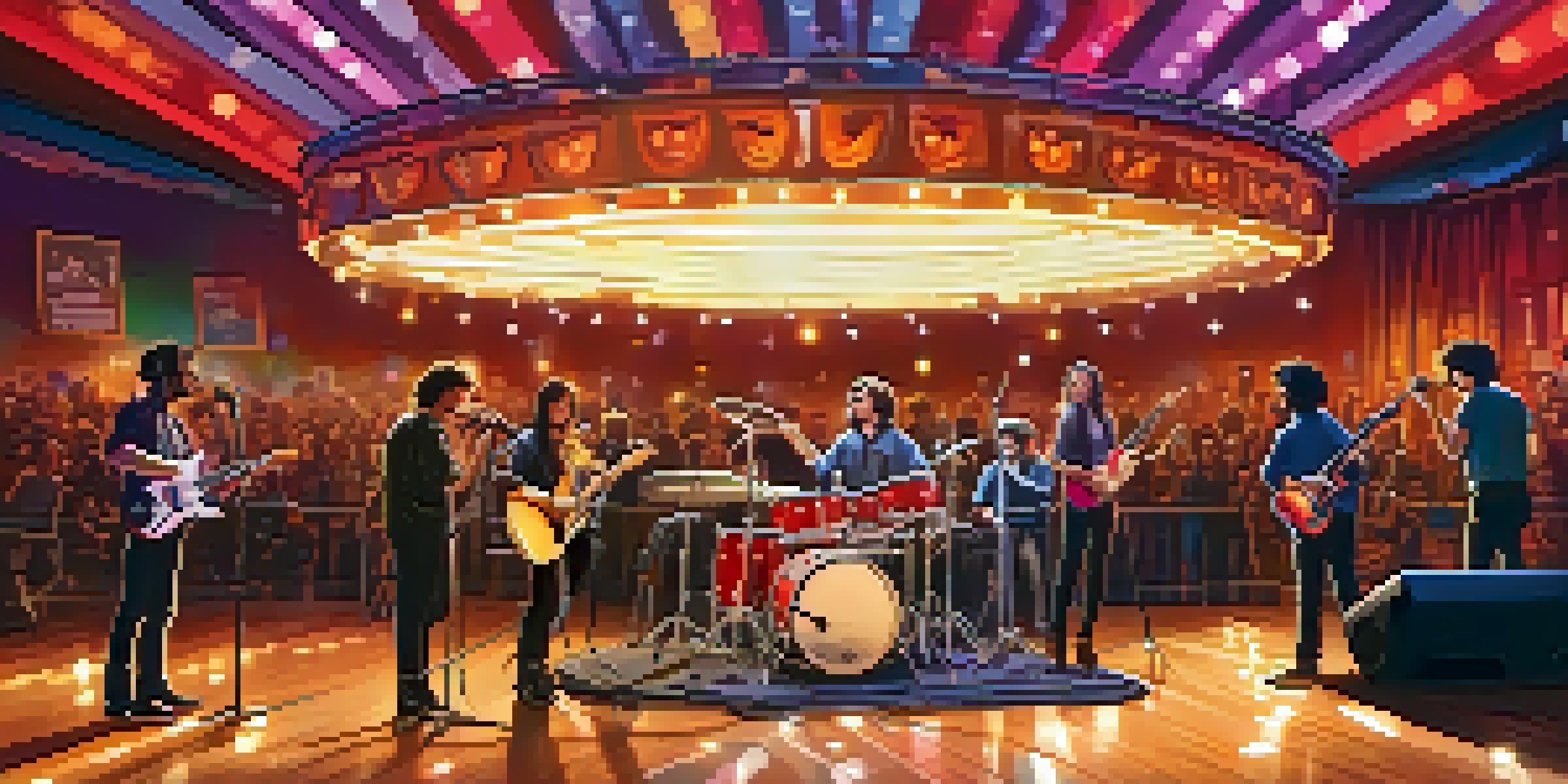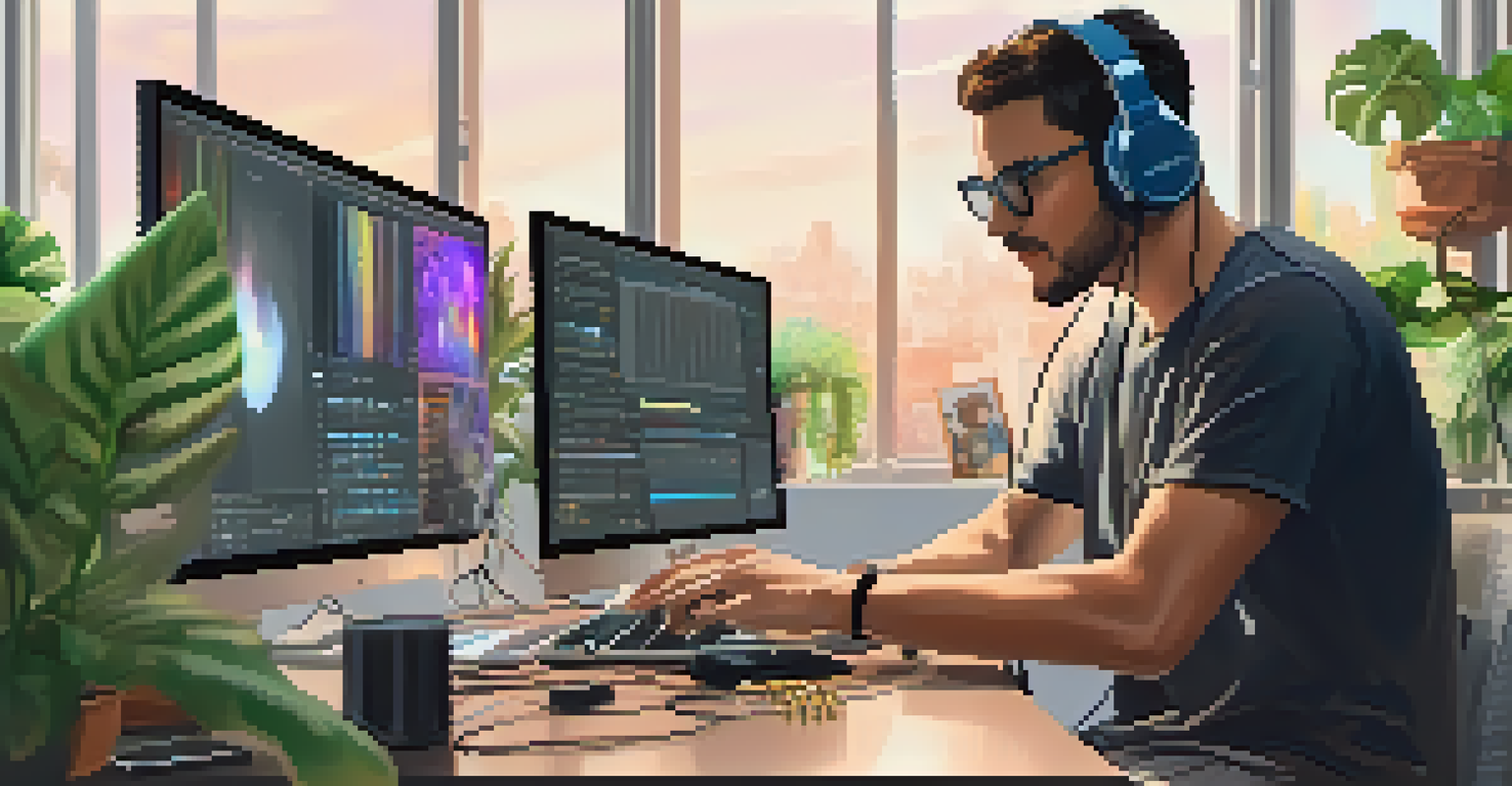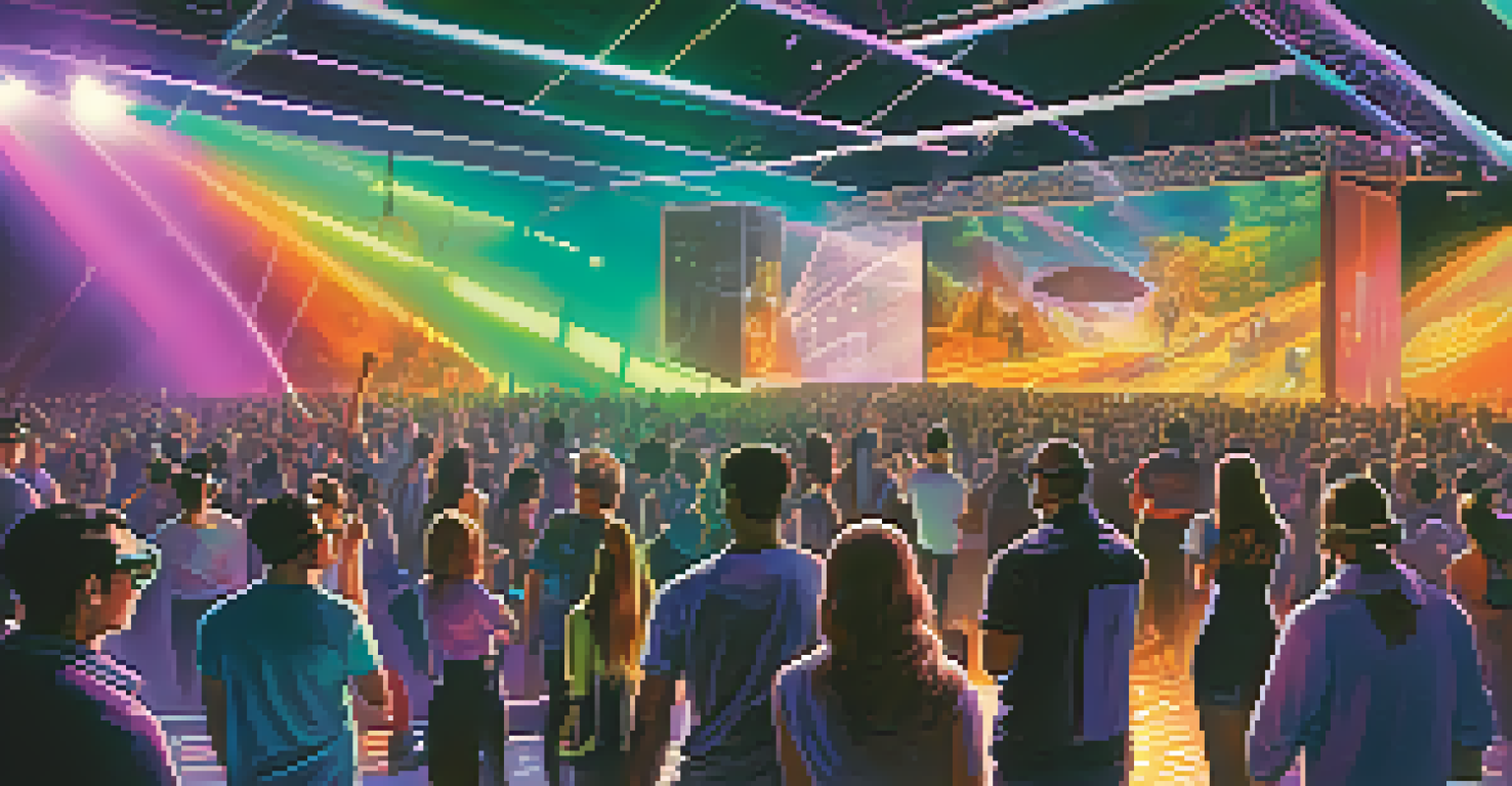The Future of Music: NFTs Reshaping the Industry Landscape

Understanding NFTs and Their Role in Music
NFTs, or Non-Fungible Tokens, are unique digital assets that represent ownership of a specific item, such as artwork, music, or collectibles. In the music industry, they enable artists to sell their work directly to fans, bypassing traditional distribution methods. This creates a more personal connection between creators and their audience, allowing musicians to retain more control over their art.
NFTs are not just a trend; they are a way for artists to reclaim their power and engage directly with their audience.
For example, an artist can create an NFT of a song, granting the buyer exclusive rights or special perks, such as backstage passes or signed merchandise. This innovative model not only allows artists to monetize their work in new ways but also offers fans a chance to invest in their favorite musicians. As more artists explore NFTs, they’re reshaping the landscape of music ownership and fandom.
Moreover, NFTs provide a way for artists to earn royalties through secondary sales. When an NFT is resold, a portion of the profits can go back to the original creator, ensuring they benefit from their work long after the initial sale. This concept of ongoing revenue is a significant shift from traditional models where artists often see little from resale.
The Impact of NFTs on Revenue Streams for Artists
Traditionally, musicians relied heavily on album sales, touring, and merchandise for income. However, the rise of streaming services has significantly diminished album sales, leaving many artists struggling to make ends meet. NFTs present a fresh avenue for revenue, enabling musicians to create unique offerings that can be sold directly to their fans.

By leveraging platforms that support NFT sales, artists can generate income through limited editions of songs or albums, offering exclusive content that fans can’t find elsewhere. For instance, an artist might release a special live recording as an NFT, which could command a higher price due to its unique value. This not only boosts earnings but also fosters a sense of community among fans.
NFTs Enhance Artist-Fan Connections
NFTs allow artists to sell their work directly to fans, fostering a personal relationship and providing unique perks.
Additionally, NFTs can help artists build long-term relationships with their supporters. When fans purchase NFTs, they often feel a deeper connection to the artist, leading to increased loyalty and engagement. This relationship can translate into higher attendance at concerts, more merchandise sales, and greater overall support for the artist’s career.
Challenges Facing Artists in the NFT Space
While the potential for NFTs is exciting, artists also face several challenges in this new space. One of the main hurdles is the technical complexity of creating and selling NFTs, which can be daunting for those who aren’t tech-savvy. To navigate this landscape, artists need to understand blockchain technology and how to use various NFT platforms effectively.
The future of music is about connection, creativity, and community. NFTs can play a crucial role in making that happen.
Moreover, the environmental impact of blockchain technology raises concerns among artists and fans alike. The energy consumption associated with creating and trading NFTs can be significant, leading to scrutiny from environmentally conscious supporters. As a result, many artists are seeking eco-friendly alternatives or platforms that prioritize sustainability.
Another challenge is the oversaturation of the market. With so many artists jumping on the NFT bandwagon, standing out can be tough. Musicians must find innovative ways to market their NFTs and create unique value propositions that resonate with their audience, ensuring that their offerings don’t get lost in the noise.
NFTs and the Democratization of Music Distribution
NFTs are helping to democratize the music industry by allowing independent artists to reach audiences without relying on major labels. This shift enables creators to maintain artistic control while still earning a fair income from their work. As more artists embrace NFTs, the barriers to entry in the music industry continue to fall.
For instance, a small band can release their music as NFTs and directly connect with fans, building their brand without needing a record label to back them financially. This direct-to-fan model fosters a sense of ownership and community that traditional distribution methods often lack. Fans become more than just listeners; they can become stakeholders in an artist’s success.
New Revenue Streams for Musicians
NFTs provide musicians with innovative ways to monetize their art, such as selling exclusive content and benefiting from secondary sales.
Additionally, this democratization extends to fans, who now have the opportunity to support their favorite artists in meaningful ways. They can purchase NFTs, attend virtual concerts, or even collaborate on creative projects. This shift not only empowers artists but also enriches the overall music experience for fans, creating a vibrant ecosystem.
The Role of Music Platforms in NFT Adoption
Music platforms play a crucial role in the adoption of NFTs within the industry. As more platforms begin to support NFT transactions, artists have increased opportunities to showcase their work and connect with potential buyers. These platforms often provide user-friendly interfaces that simplify the process of minting and selling NFTs, making it accessible for all artists.
For example, platforms like Audius and Catalog have emerged specifically to cater to musicians looking to explore the NFT space. By providing tools and resources tailored for artists, these platforms empower creators to navigate the complexities of the NFT market with greater ease. This support can be invaluable for musicians who may not have the technical expertise to dive into blockchain technology alone.
Moreover, as these platforms grow in popularity, they help to legitimize the use of NFTs in music. The more artists and fans engage with NFTs, the more mainstream acceptance they gain. This increased visibility can lead to more collaborations, innovative projects, and a thriving community centered around music and digital ownership.
The Future of Live Music and NFTs
The intersection of live music and NFTs opens up exciting possibilities for artists and fans alike. Imagine attending a concert where the tickets are NFTs, granting exclusive access to backstage experiences or meet-and-greets with the performers. This could redefine the concert experience, providing fans with unique interactions that enhance their enjoyment and connection to the artists.
Additionally, artists can use NFTs to offer limited edition merchandise or exclusive content during live shows. For example, a musician might release a special NFT version of a song performed live at the concert, allowing attendees to own a piece of that unforgettable experience. This not only adds value to the live event but also creates a sense of urgency for fans to participate.
Democratizing Music Distribution
NFTs empower independent artists to reach audiences directly, bypassing traditional labels and enhancing fan engagement.
As technology continues to evolve, we can expect even more innovative ways to integrate NFTs into live music. Virtual concerts, augmented reality experiences, and exclusive digital content are just a few possibilities. The future of live music will likely be shaped by these advancements, creating unforgettable moments for both artists and fans.
Conclusion: Embracing the NFT Revolution in Music
As we look to the future, it’s clear that NFTs are reshaping the music industry in profound ways. From providing new revenue streams for artists to democratizing music distribution, the potential for innovation is immense. While challenges exist, the opportunities that NFTs present are too significant to ignore.
Artists and fans alike are encouraged to embrace this revolution and explore the possibilities that NFTs offer. By engaging with this technology, musicians can take control of their careers while fans can deepen their connections to the music they love. The relationship between creators and supporters is evolving, and this is just the beginning.

In conclusion, the future of music is bright, with NFTs leading the charge toward a more equitable and engaging industry landscape. As we continue to navigate this exciting new terrain, one thing is certain: the symbiotic relationship between artists and fans will only grow stronger, paving the way for a vibrant future in music.